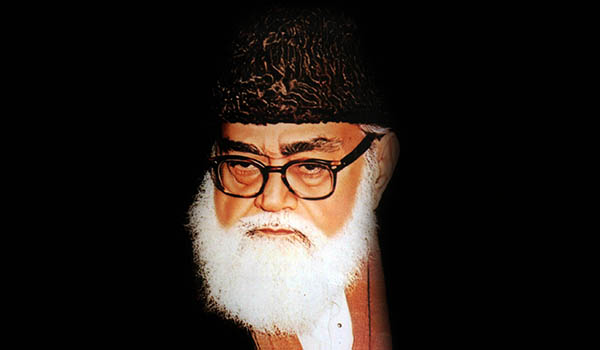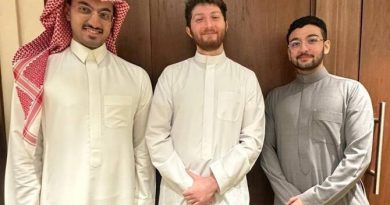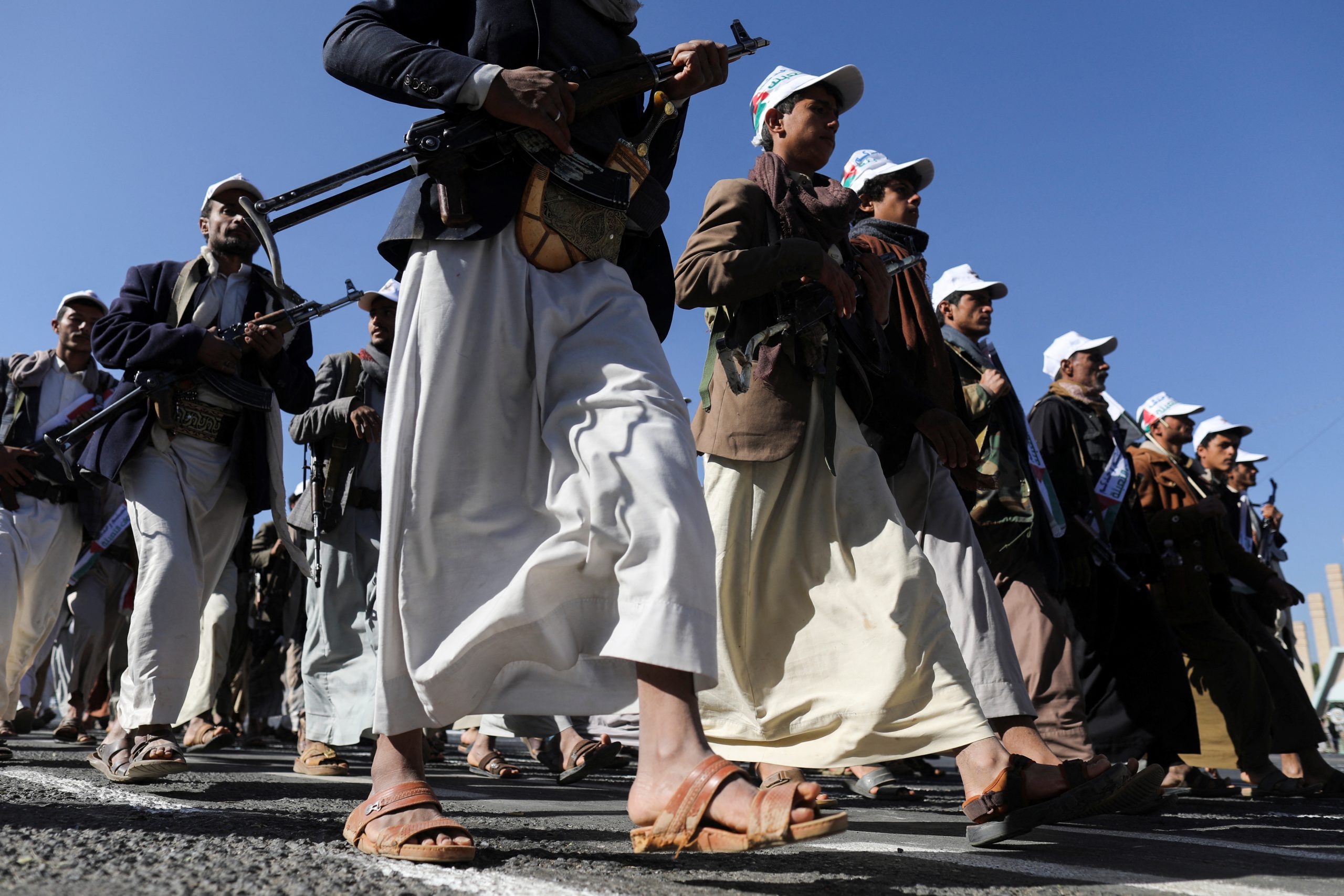Maududi: Father of Modern Jihadism
by Jassem Tamim
Maududi’s views continue to influence thousands of Islamist militants worldwide.
The 29th of August 1966, a man who had the most significant influence on modern Jihadism and the one who considered Sayyid Abul-Ala Maududi to be a ‘great Muslim’, was executed for ‘plotting to overthrow’ the Egyptian regime. Syed Qutb was not the only prominent Muslim to hold Maududi in such high regard. From kings and head of states to the board scholars and thinkers, Syed enjoyed respect and support, but also suffered persecution and lengthy imprisonments. This article will look at controversies of his legacy. And whether he can be held morally responsible for crimes committed in the name of the Ideology he defended all his life.
Like other Muslim thinkers, Maududi was born to a middle-class Muslim family settled in Hyderabad, part of British controlled India. He started his learning journey from homeschooling where he excelled in Arabic language and entry-level Islamic disciplines. By the age of 11, he was able to translate fine modern Arabic literature into Urdu. One of his early influencers was Iranian Philosopher Mulla Sarda, including the concept of the necessity of Sharia to the bettering of individual Muslims and societies, (Hasan, 1984).
By the age of 16, when his father passed away. He interrupted his learning and moved to Delhi, where he enhanced his reading and built up only multidisciplinary education he had between Aurangabad and Hyderabad. Maududi adopted a comparative approach showing interest and appreciation for the rise of Europe. Attributed in his opinion to the work of the philosopher, and blaming Muslim scholars for not doing enough to enlighten the Ummah.
He restored his studies and obtained a license in Islamic studies, yet he never sees himself a scholar:
He said, “I do not have the prerogative to belong to the class of Ulema. I am a man of the middle cadre, who has imbibed something from both the systems of education, the new and the old; and has gathered my knowledge by traversing both paths. By virtue of my inner light, I conclude that neither the old school nor the new is totally in the right”.
Before returning to Hyderabad in 1928, he worked as editor of the influential and anti-British Al-Jamia newspaper. In his native district, he witnessed what he described as the decline of Islamic moral and inclination towards secularism. This fear probably shaped his politics and the way he perceived the need for change. Undoubtedly, Maududi was a sincere and humble person who witnessed enormous political and social changes taking place in India and the Islamic world. Not even the creation of Pakistan satisfied his eagerness to see Islam’s might as he read about it in the book of History.
His frustration in seeing the non-Muslim West progressing in science and humanism, compared to the Muslim world’s decline into poverty and political volatility. It was probably behind his reaching out to the broad Muslim world where he taught and learned theories about Islam, philosophy and politics. However, Maududi was never regarded as a man of peace. Years after his death, his views are said to be behind most of the political and violent Islam in modern days.
In one of His books called: A reminder for the caller to Islam, Maududi laydown his views in both spiritual and operational guidance for modern Islamic militancy. Setting objectives for his global view of Islam’s awakening, the book is not for a general audience. It could be not very easy to comprehend even for an educated Muslim who doesn’t believe in political and religious activism. The book calls for ‘migration to Allah’ a concept embraced by all Islamic groups in modern days from Muslim Brotherhood of Egypt to The Islamic State group in Iraq, Syria and elsewhere, (Faruqi, 1968).
This ‘doctrine takes its routes from Historical migration of the Prophet Mohammed PBUH, from Mecca to Medina to flee persecution and preserve the faith. Mawdudi builds on that event and its wisdom, considering that everything the Prophet PBUH did or said, is a source of knowledge and guidance for every Muslim.
The migration doesn’t take place necessarily by moving from a location to another, as in verse: “And I will leave you and those you invoke other than Allah and will invoke my Lord. I expect that I will not be in invocation to my Lord, unhappy.” (Quran, 19:48). Prophet Ibrahim tells his father about his intention to isolate himself from his people, for disagreement with their beliefs.
Calling Migration to Allah is perceived as one of the stages in the struggle for the call to Islam. In a liberal society, this can be seen as a matter of personal choice. However, this type of isolations in communities where families and friends play the central role in Muslim’s lives. The implications can bring the militant to spend more time segregated with other members who have the same ideology, which leads to more radicalization.
When Jamaa replaces family and tribe, loyalty to the group likely to take priority over the society and the country. Two extreme examples of how this doctrine can lead to disasters are:
- Al-Takfīr was al-Hijrah: Where the word migration explains half of its ideology. Members of this group ended up believing anyone who is not joining them is an apostate, who’s life money and relatives become the lawful target. Isolating themselves from society without physically leaving the country (Encyclopedia Britannica, 2020).
- The Islamic State in Iraq and Syria: After they fled incarceration, founders of this group called for every Muslim to practice the duty of ‘Hijra’. Migrate to the territory under their control, this call was according to the binding to every Muslim which misled thousands to join them,
In another instance, Maududi praised Japanese Kamikazes telling his audience of Islamist militants and students that that was the spirit they needed to serve the cause of Dawaa better. The words of the scholar known for his opposition to violence against innocents did set another controversial expansionist agenda for his concept of the Islamic state.
Maududi wrote: “Islam wishes to destroy all states and governments anywhere on the face of the earth which are opposed to the ideology and programme of Islam, regardless of the country or the nation which rules it. The purpose of Islam is to set up a state on the basis of its own ideology and programme, regardless of which nation assumes the role of the standard-bearer of Islam or the rule of which nation is undermined in the process of the establishment of an ideological Islamic State. Islam requires the earth—not just a portion, but the whole planet…. because the entire mankind should benefit from the ideology and welfare programme [of Islam] … Towards this end, Islam wishes to press into service all forces which can bring about a revolution and a composite term for the use of all these forces is ‘Jihad’…. the objective of the Islamic ‘jihad’ is to eliminate the rule of a un-Islamic system and establish in its stead an Islamic system of state rule”.
Maududi’s views continue to influence thousands of Islamist militants worldwide, his scholarly competence was compromised by changes to geopolitics during and after his lifetime. He may have had noble intentions in serving Islam, Muslims and humanity in his time and beyond. Unfortunately, he didn’t take into consideration that his work can be taken out of context (Robinson and Nasr, 1998).
Jassem Tamim is originally from Morocco, settled in United Kingdom. He holds MA degree in Terrorism and Security from King’s College London. He is currently doing PhD research in Digital Counter-Radicalization.



